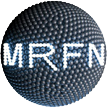The Dimension model AFM uses tip scanning to obtain topographic and phase imaging of the surface. This method allows samples up to 200mm in diameter to be scanned. Apart from polymer samples that are mainly studied in our lab, this equipment can image semiconductor wafers, lithography masks, magnetic media, CDs/DVDs, biomaterials and other materials with sub nm resolution in vertical (Z) dimension. The maximum scan area in XY dimension is 90 mm2. In addition accessories are available to carry out STM, MFM and imaging under liquid.


